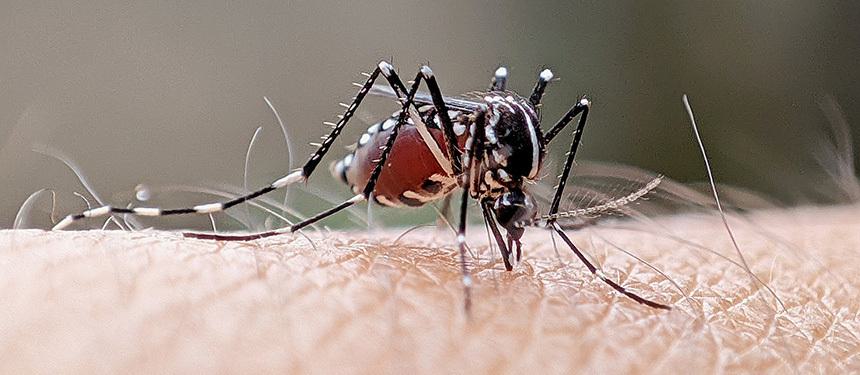What's happening: Dengue outbreak in Brazil

Travellers are advised to employ mosquito bite prevention measures regionally due to a recent uptick of dengue cases in Brazil.
In the first five weeks of 2024 over 450,000 cases have been reported, which is a significant increase compared to the same time period in previous years. Four states have declared emergencies, and the government is commencing a mass vaccination program. Healthcare facilities in affected areas are under significant pressure and so access to healthcare for any condition may prove difficult. Dengue cases are likely to remain elevated in the coming months owing to the warm season.
What is dengue?
Dengue is a common mosquito-borne illness of the tropics and sub-tropics affecting 50-100 million individuals worldwide every year. Although the vast majority of patients make a full recovery, 5% have a severe form of the disease which results in up to 20,000 fatalities annually.
Symptoms and transmission
Most people experience no symptoms but around 25% of people will go on to become unwell around five days after being infected. The primary symptom is a high fever, accompanied by muscle or joint pains, headaches, and a rash. Diarrhoea and vomiting may also be present.
The symptoms last for around five days, after which most people make a full recovery. A small number go on to develop severe dengue which is characterised by bleeding and the development of shock due to fluid loss. Severe dengue can rapidly progress to organ failure and, uncommonly, death.
Diagnosis and treatment
Once suspected, dengue can be confirmed using blood tests. The treatment is supportive and is aimed at managing symptoms of the infection and monitoring closely for the development of any complications. This will involve fever control, replacement of fluids, and regular blood tests.
Particular attention is given to blood clotting studies as dengue can cause a drop in platelet counts leading to spontaneous bleeding. In some cases, transfusion of blood products may be required. It is important to avoid using non-steroidal anti-inflammatory medications (such as aspirin or ibuprofen), as these could worsen any bleeding complications.
There are four strains of dengue virus, and several over similar viruses (called flaviviruses), so it is unfortunately possible to be infected with dengue more than once. Individuals infected with dengue for the second time often report a worse illness, and progression to severe dengue can be more likely in subsequent infections.
Prevention
Although some vaccines for dengue do exist, these have not been made widely available for use by travellers. The primary method of preventing dengue is avoidance of mosquito bites, particularly around dawn and dusk when they are most active.
Clothing with long sleeves and trousers should be worn where possible, minimising exposed skin. A DEET-based insect repellent should be applied to any exposed skin, and this should be applied after sunscreen, if applicable. Mosquito nets treated with insecticide should be hung over beds when sleeping. Nets should be checked for any holes and should be tucked under the mattress.
For more in-depth information on bite prevention measures, Healix provide a comprehensive e-learning course. Please contact us at enquiries@healix.com for more information.


